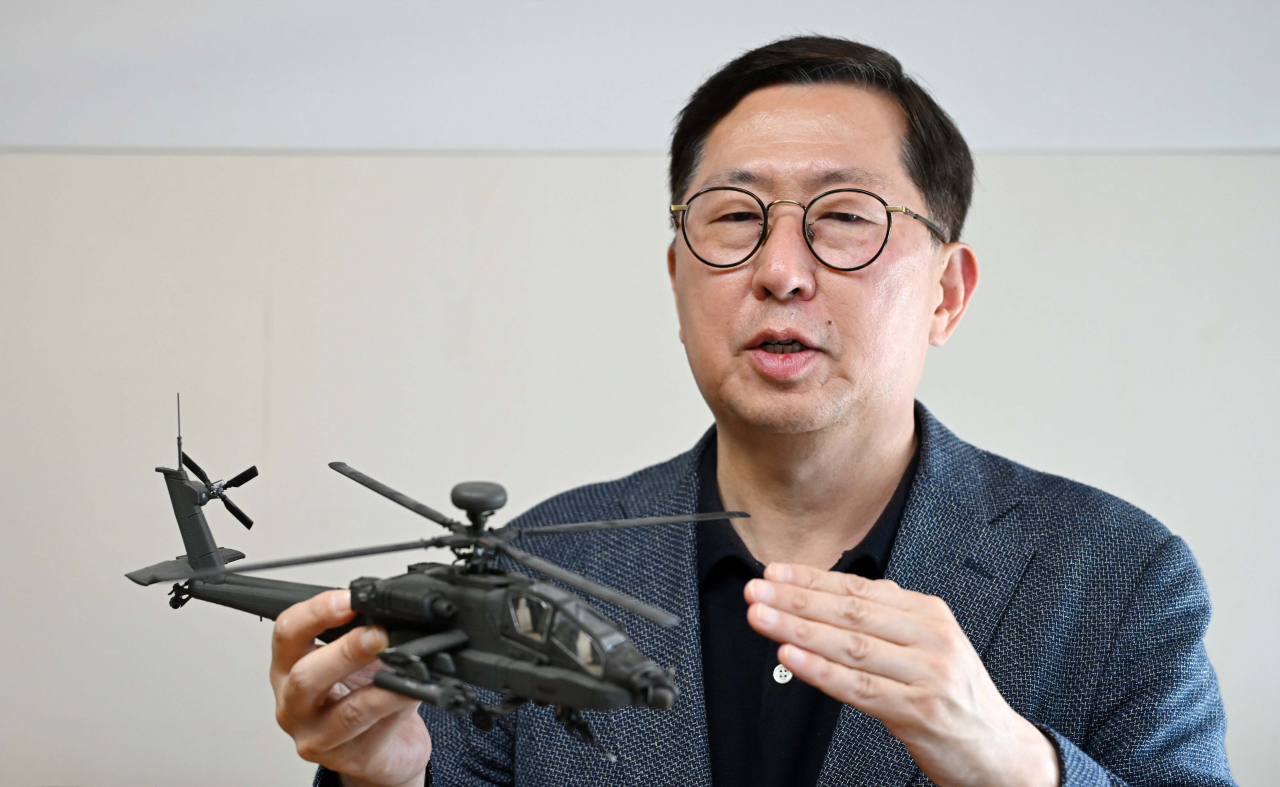[New faces of Assembly] Trump factor sets mood for South Korea to cultivate its ‘nuclear potential’: lawmaker-elect
By Kim ArinPublished : May 13, 2024 - 18:10
In this series, The Korea Herald sits down with newcomers chosen by South Koreans to serve on the National Assembly for the next four years, to talk about their visions and takes on issues in Seoul and beyond. -- Ed.

The possibility of Donald Trump returning to the White House may prompt South Korea to consider bolstering its security beyond the protection of its alliance with the US, according to ruling People Power Party lawmaker-elect, Yu Yong-weon.
Speaking to The Korea Herald on Friday, Yu said that the former US president winning a second time amid escalating nuclear threats from North Korea called for South Korea to mull building what the soon-to-be lawmaker termed “nuclear potential.”
He said that “arming with nuclear weapons is the surest way of deterring North Korea’s nuclear weapons usage” and that it may be “time for South Korea to begin discussion on fostering its nuclear potential.”
“Securing nuclear potential means enhancing defense capabilities below the threshold of being subject to international sanctions, so that we may have the option of launching a nuclear response in an emergency,” he said.
But for South Korea to have a nuclear potential, its nuclear deals with the US will need to be revised to allow the country to develop nuclear fuel enrichment, reprocessing and other key technologies, he said.
Over his term in the Assembly, he said he would push to revise the laws on nuclear safety and energy use to support the nurturing of experts and resources in the areas.
He said he would name the initiative for securing nuclear potential the “Mugunghwa Project,” after South Korea’s national flower -- much like the US government’s World War II program for producing atomic bombs, the Manhattan Project.
His suggestion for South Korea to consider enhancing its nuclear defense capacity, without necessarily acquiring nuclear weapons, came in the context of recent remarks from Trump that were interpreted as potentially withdrawing US troops from the country.
In an April 30 interview with Time magazine, Trump said he wanted South Korea to “treat us properly,” and that the US troops here were “in a somewhat precarious position.” “Why would we defend somebody … and we’re talking about a very wealthy country,” he elaborated.
Yu said South Korea “already learned from Trump’s first term” that the former US president was capable of publicly questioning its security commitments to South Korea and complaining its ally in East Asia was not paying its fair share of defense spending.
He said that the US strategic assets such as nuclear-powered submarines were frequently deployed in South Korea over the course of last year, which Trump could start asking South Korea to pay for.
“I also think it is possible Trump may threaten to downsize the US troops here if South Korea doesn’t accede to these demands,” he said.
The debate is already growing in South Korea for a possible nuclear option, amid escalating tensions posed by North Korea’s ever-multiplying nuclear and missile portfolio.
Others in the ruling party have similarly advocated for independent nuclear capabilities following Trump interview. “If Trump wins, his ‘America first’ approach may not align with the security interests of South Korea and jeopardize our security situation,” Rep. Yoon Sang-hyun said in a May 2 statement.
Popular polls suggest the majority of South Koreans support getting its own nuclear weapons. One poll in February showed more than 70 percent say they were in favor of the country going nuclear to stop a nuclear strike from North Korea.
The nuclear ambitions voiced in public opinion polls and in the political world, however, do not seem to be backed by expert consensus, according to an April poll by the Center for Strategic and International Studies based in Washington. About two-thirds of South Korea’s strategic experts say they do not favor nuclearization, the CSIS poll found.
Yun cited the volatility in the US administration’s position on South Korea, case in point being Trump, demonstrated the “limits of depending on the US for our security.” “This is why the public opinion is in favor of arming ourselves, and I worry that if Trump wins, the support is only going to grow,” he said.
He pointed out that some experts in Washington were beginning to say South Korea should be allowed to develop nuclear weapons.
“As an Assembly member, I will work to create consensus across parties left and right to prepare the grounds for securing the potential for our nuclear defense capabilities.”

Yu Yong-weon was a defense reporter at a Seoul-based conservative daily for 31 years. He founded the Korea Defense and Security Forum and ran an online forum for defense and military watchers that has some 60,000 members. Earlier this year, he was recruited by the ruling People Power Party as a candidate for the National Assembly. In the April 10 general election, he was elected through the proportional representation system.


![[H.eco Forum] H.eco Forum calls for transition to clean, carbon-free energy](http://res.heraldm.com/phpwas/restmb_idxmake.php?idx=644&simg=/content/image/2024/05/22/20240522050668_0.jpg&u=20240522175145)
![[Exclusive] LACMA admits it needs further research on donated Korean paintings](http://res.heraldm.com/phpwas/restmb_idxmake.php?idx=644&simg=/content/image/2024/05/22/20240522050568_0.jpg&u=20240523001632)

![[Bridge to Africa] Africa-Korea partnership: Why it matters for future](http://res.heraldm.com/phpwas/restmb_idxmake.php?idx=644&simg=/content/image/2024/05/22/20240522050681_0.jpg&u=20240522182351)
![[Herald Interview] Korean adoptees embark on journeys to find roots](http://res.heraldm.com/phpwas/restmb_idxmake.php?idx=644&simg=/content/image/2024/05/22/20240522050754_0.jpg&u=20240522190539)
![[Graphic News] Medical tourists visiting Korea reach record high](http://res.heraldm.com/phpwas/restmb_idxmake.php?idx=644&simg=/content/image/2024/05/21/20240521050794_0.gif&u=20240523171313)











![[Today’s K-pop] NCT127 drops single in Japan to mark anniversary](http://res.heraldm.com/phpwas/restmb_idxmake.php?idx=642&simg=/content/image/2024/05/23/20240523050694_0.jpg&u=20240523175657)